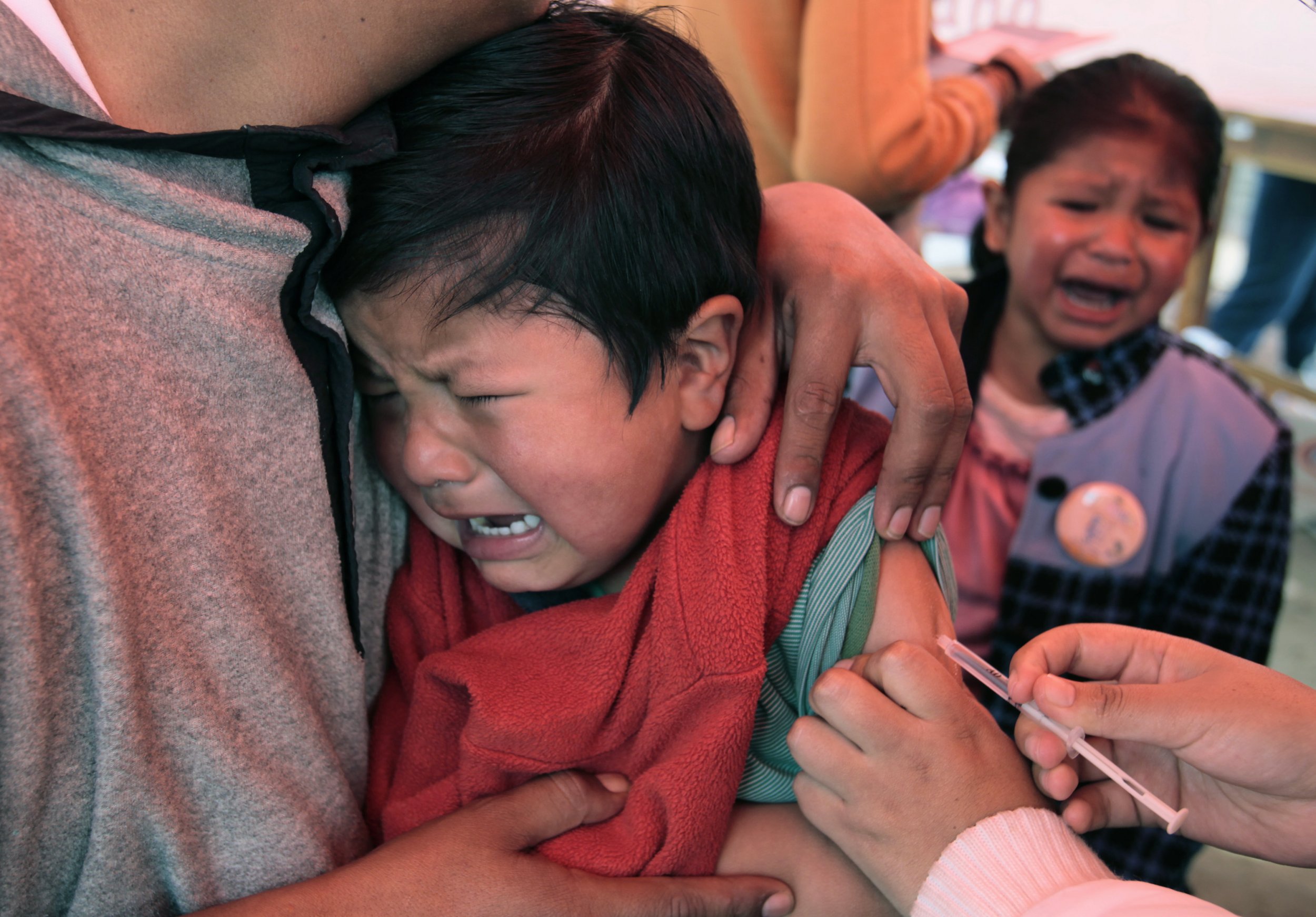
A new statistic is circulating in the anti-vaccination corner of the Internet. Two numbers, side by side: zero, the number of deaths caused by measles in the past decade, and 108, the number of deaths caused by measles vaccines in the past decade. The writing's on the wall: Vaccines kill, measles doesn't.
The first number, which comes from the U.S. Centers for Disease Control and Prevention (CDC), is correct. Due to advances in modern medicine, the mortality rate for measles in the United States is exceptionally low—on average, around 0.3 percent from 1987 to 2000, according to the World Health Organization (WHO). Not so for other countries, especially in the developing world: In 2000, measles was responsible for 22 percent of deaths of children under 5 in Ethiopia. So although measles remains a lethal disease elsewhere in the world, it is true that it hasn't killed any Americans in the past decade.
But then there's the second number: more than a hundred deaths as a direct result of having received a measles vaccine since 2004. This is the one that should strike you as off. And that's because that figure comes not from the CDC but from the National Vaccine Information Center, a 501(c)3 nonprofit founded in 1982 for parents whose children suffered brain injury or death—they said—as a result of having received vaccines The group campaigns against mandatory vaccination laws, including those that require children to get the measles vaccines to attend public school, for example.
The CDC also maintains a database of adverse events, which it shares with the Food and Drug Administration. It is legally mandated to do so. According to that database, there have been 69 deaths following receipt of measles vaccines since 2004. But neither of these numbers—108 or 69—tells the true story. This is because the protocol for reporting adverse reactions to vaccines, called the Vaccine Adverse Event Reporting System, or VAERS, does not draw causal relationships between vaccines and adverse effects but merely correlations.
In layman's terms, either 108 or 69 people (depending on whom you ask) died sometime after having been vaccinated against measles since 2004, but not necessarily because they were vaccinated against measles. In some cases, their deaths were totally unrelated, or the patient had some undiagnosed congenital illness that meant he or she should never have been vaccinated in the first place. This data is all publicly available in the CDC's VAERS database.
There's one more way in which the anti-vaxxers misconstrue this statistic. While it's true some people may have died as a result of the measles vaccine, many more would have died without them. According to the WHO, the measles vaccine prevented about 15.6 million deaths from 2000 to 2013. Childhood measles remains a leading cause of blindness in developing countries. In places like Haiti, Bangladesh and sub-Saharan Africa, the measles vaccine led to an overall mortality reduction of between 30 and 86 percent from 1970 onward, according to a paper published in The Journal of Infectious Diseases by Drs. Robert Perry and Neal Halsey.
Those promoting this 108 number appear to be uninterested in widely accepted facts, and most don't seem to understand the difference between correlation and causation. Or they just don't care. Their primary interest, it seems, is in waging a PR war against the likes of the CDC. And if they win that battle, it could be a public health disaster for all of us.
Uncommon Knowledge
Newsweek is committed to challenging conventional wisdom and finding connections in the search for common ground.
Newsweek is committed to challenging conventional wisdom and finding connections in the search for common ground.
About the writer
Taylor is a general assignment reporter for Newsweek where he writes about U.S. politics, crime and courts, religion, marijuana law, ... Read more
To read how Newsweek uses AI as a newsroom tool, Click here.








